Summer Fun! Camps Rise to the Occasion with Inclusive Summer Programs
- Podcast Title: Accessible Audio
- Podcast URL: https://open.spotify.com/episode/2rZTzxPSv1JSSPdC1g1j5J?si=woPGuE9IRBiLvJX9qGKkkw
For most kids, summer is one of the most wonderful times of the year. And one thing that makes it pretty awesome is summer camp. There was a time when children and young adults with developmental disabilities (DD) didn’t have access to the same summertime activities as many others. However, more programs are emerging to give everyone enjoyable experiences while adding the life skills of self-confidence, leadership, and character building.
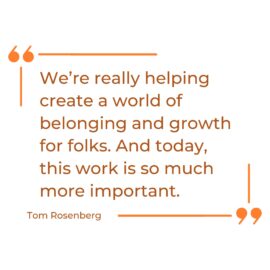 In the U.S., summer camps are a $3.5 billion industry, with about 26 million school-aged kids (about a third of the population) attending for at least a week, according to a report by Bloomberg.
In the U.S., summer camps are a $3.5 billion industry, with about 26 million school-aged kids (about a third of the population) attending for at least a week, according to a report by Bloomberg.
A rise in religion-based organizations, as well as other nonprofits and government programs recognizing the importance of inclusion for all has expanded these quality communities of belonging and social connectedness, said Tom Rosenberg, president and CEO of the American Camp Association (ACA), a national nonprofit comprised of more than 16,000 member camps across the country.
The ACA doesn’t operate camps, but it focuses on empowering camps to create quality experiences for all children and adult campers.
"We're really helping create a world of belonging and growth for folks. And today, this work is so much more important," added Rosenberg. "The visibility of the work is really important as kids prepare to learn in school. We're really here to support camp professionals and camps and the work that they do to create those quality experiences that provide belonging and growth."
Building Inclusive Camps
The pandemic changed the way we all interacted with each other, and it was especially life-altering for people with DD. Camps offered a way for socialization and interaction for campers with disabilities, and after the pandemic, things changed.
Lisa Drennan, Founder of MERGE Inclusion Consulting, has a 35-year career supporting individuals with intellectual and developmental disabilities to be active and engaged within their community. MERGE, based in Massachusetts, is a consulting firm that provides expert guidance to recreation, sport, camp, and community organizations through tailored training programs that empower these entities to welcome, engage, and support individuals with diverse abilities.
Most of the time, camp counselors and directors work with an ever-rotating staff of teens and young adults. How to keep consistency with inclusion principles with a churning staff can be a challenge for camps.
Through her training, Drennan provides resources and how-tos for camps and organizations to build inclusive experiences as a whole team.
There are four program inclusion principles she encourages camps to adopt:
- Facilitating Social Connections
- Flexible Thinking
- Understanding Sensory Needs
- Making Modifications
Four years later, COVID has brought on some changes and possible resets for camps as they approach a new way of looking at inclusion.
"The difference right off the top is that before COVID, many camps were focused on or had an inclusion specialist or coordinator – someone focused on inclusion," said Drennan. "After COVID, those positions went away – that intentional focus went away. There are fewer specialists, and we were just making progress on this."
Budgets have also been scrapped, so the desire to re-hire these positions is also being affected by money availability.
However, Drennan sees an opportunity. "A recreation program should be all-inclusive. You don’t have to have specialized people to make an inclusive camp," she adds.
As the former YMCA director of inclusion, she recalled that they were pushing individuals with disabilities to inclusion directors, so it wasn’t real inclusion. "Sectioning it off inside an integrated setting isn’t inclusive," she said.
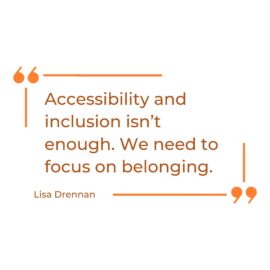 Her principles are that real inclusion must look the same in all settings, for all campers, by all means. "This approach is for everybody—learn inclusive strategies and approaches. Then you will have more authentic inclusion," she adds. Some tactical strategies she provides are visual calendars, list expectations, transition countdown, and positive language.
Her principles are that real inclusion must look the same in all settings, for all campers, by all means. "This approach is for everybody—learn inclusive strategies and approaches. Then you will have more authentic inclusion," she adds. Some tactical strategies she provides are visual calendars, list expectations, transition countdown, and positive language.
Drennan recently presented at the national conference for the ACA to a packed house. The need is there and bigger than ever.
She’s learning that there are more social and emotional challenges being felt because of school shutdowns. "We are feeling the impact of COVID isolation, and there is definitely an increase in the need for inclusive thinking from camps and directors who want to address this," she added.
There are many camps figuring out inclusion and best practices. The ones succeeding are sharing resources. There is much more sharing, and camps are meeting at the moment.
Based on Drennan’s work across the country, the camp culture is now about belonging.
"Accessibility and inclusion isn’t enough," says Drennan. "We need to focus on belonging. How do we as recreation programs welcome people with developmental disabilities, and create opportunities for belonging?"
A Place of Belonging
Nestled in Acworth, GA is Camp All For One, housed at Hand, Hoof, and Heart Farms. Founded by Erin Chimberoff, the camp is an inclusive day camp for children and teens with or without disabilities. Camp activities include horseback riding, nature walks, fishing, cooking, gardening, music, arts and crafts, dance, team building games, special guests and so much more.
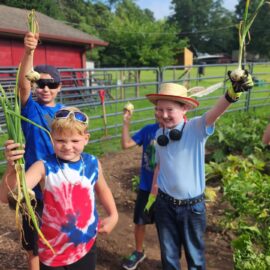 The camp started in 2016 for one week with eight campers and 20 volunteers. Today, it has grown to five weeks with 12 campers and 6-10 volunteers.
The camp started in 2016 for one week with eight campers and 20 volunteers. Today, it has grown to five weeks with 12 campers and 6-10 volunteers.
The intention of the camp was inclusion from day one. "I advertised it as an inclusive camp atmosphere, and also put the amount of support we offer, such as 1:1 support, and a list of activities at the camp," said Chimberoff.
The activities, Chimberoff says, are inclusive, meaning that they are all done together with all the campers. This fosters friendships and in many cases, leadership skills.
"I encourage my other campers who do not need as much assistance to find a buddy and make friends," said Chimberoff. "I encourage the counselors to do that as well, to make a buddy system and match individuals."
The camp also utilizes a "Break System," where it allows all the campers to take a break during the day if they don’t want to participate or just need a break. But, there is a caveat – they have to include a friend.
When asked why, Chimberoff explained, "This facilitates friendship and promotes safety, while practicing emotional loops and conversations." It also teaches flexibility, gives a sense of control, allows the campers to learn their limitations, and make decisions for themselves.
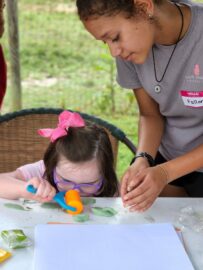 The camp involves the local youth from high school and colleges as camp staff volunteers. They learn how to work with children with and without disabilities. Some counselors are also people with disabilities who were former campers.
The camp involves the local youth from high school and colleges as camp staff volunteers. They learn how to work with children with and without disabilities. Some counselors are also people with disabilities who were former campers.
Hand, Hoof, and Heart also has two other inclusive camps, but Camp All For One offers 1:1 support, so it can work with individuals with severe cognitive disabilities.
Currently, being a farm, the camp is not fully accessible for campers with physical disabilities. "It is something we are interested in, but at the moment, resources to make our farm and facilities accessible are not available," said Chimberoff, reflecting on zoning rules and construction costs. "It’s definitely something we would love to do in the future."
While inclusion and belonging are the key, some camps are specialized to support campers with specific needs that can support them to have a meaningful experience while tending to their needs.
An example is FOCUS (Families of Children Under Stress), which offers various Camp Hollywood locations throughout Georgia. There are seven locations: Lawrenceville, Alpharetta, Peachtree City, Decatur, McDonough, Marietta, and Atlanta. The nonprofit was formed more than 40 years ago by parents seeking support for themselves and their children with rare genetic illnesses.
It quickly grew from a small living-room support group into an organization with innovative programs for children with developmental and physical disabilities and their families. In 1994, it launched the first Camp Hollywood day camps to give children the care they need – and the fun they deserve. Their mission is to support parents and their children with developmental and physical disabilities.
"We offer summer camps for our children who cannot go to a regular camp," said LaShayla R. Clark, development and communications director. "We do a lot of family activities."
FOCUS currently provides services for more than 4,500 Georgia families.
"We try to do as much as we can on the front end so that when the families show up to activities, they can just enjoy themselves and not have to worry about the different things that families typically have to worry about, like, do they have ADA bracelets, … what’s the best entrance and all those different things," said Peter Otim, program director. "We’re going to offer nine total weeks of camp. Our families are able to participate for one week of camp throughout the whole [Atlanta] metro area."
FOCUS also has two camps in Marietta, two camps in Decatur, and one each in Alpharetta, Lawrenceville, McDonough and Peachtree City.
![Quote stating our summer camp is designed to be a slower paced camp [than typical camps] so that all of our campers can participate regardless of abilities.](/images/2024/Making_a_Difference/spring2024/spring-2024-assets/article-graphics/camps_quote_3-270x270.jpg) "Our summer camp is designed to be a slower paced camp [than typical camps] so that all of our campers can participate regardless of abilities," said Otim. "We spend a good bit of time combing through the activities and making sure that it is something that fits everyone."
"Our summer camp is designed to be a slower paced camp [than typical camps] so that all of our campers can participate regardless of abilities," said Otim. "We spend a good bit of time combing through the activities and making sure that it is something that fits everyone."
Emphasizing the "Hollywood" theme of the camp’s name (where every camper is a star), all of the activities are loosely based on family-friendly movies. Like other camps, FOCUS has staff and volunteers to handle activities and lead groups.
But unlike many, it has staff who take care of specific needs of some of the campers, such as:
- Nurses for medical care, including G-tube feedings and seizures.
- Male and female toileting attendants for diaper changes and restroom support reminders.
- A caregiver to child ratio of 1:4, with community volunteers for additional support.
While FOCUS has the same challenges as other camps to attract and maintain quality staff, it has an advantage, too.
"The majority of our staff have been with us for multiple years. One has been with us about 25 years now," said Otim. "They understand our kids. They know how to take care of our kids."
Maddie Farrell is one of those staffers who has been coming back year after year. She began as a volunteer while she was in high school.
"In high school, I just had an interest in working with people with special needs. And my high school offered [an] internship program," said Farrell. "I did half of my time in their office, so I helped plan some of the activities for the camp. They … gave me a background on some of the kids that they served and I helped do adaptations [to] activities so that all the kids could access them."
Farrell eventually worked more with the campers and realized she’d found her life’s work.
"I just fell in love with it. The people who work there are wonderful. And honestly, I still know a bunch of them to this day. They still work there as well," she said. I knew them as volunteers, and then as I got older, I became an employee. And so I still work with the same people, and they’re just such a great group of people, and they really understand the population that FOCUS serves."
It’s the level of care and professionalism that keeps Tami Slaton sending her son, Emerson, to Camp Hollywood every summer since he was 6 years old. He is now 10.
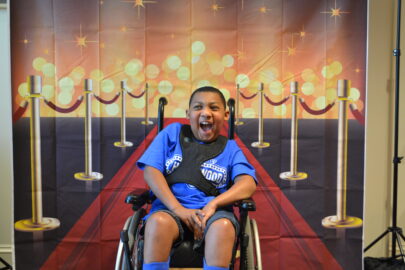 "The challenge for me for a lot of the time was, ‘where do I take him during the summer?’ Emerson does have therapies once a week and we try to take him to the pool, but I wanted him to find his community. Typical kids have their own community. They have play dates, they have sleepovers, they have their own group of friends," said Slaton.
"The challenge for me for a lot of the time was, ‘where do I take him during the summer?’ Emerson does have therapies once a week and we try to take him to the pool, but I wanted him to find his community. Typical kids have their own community. They have play dates, they have sleepovers, they have their own group of friends," said Slaton.
The quandary was where Emerson could go without his parents. Where could he learn coping skills and gain confidence? Then they found Camp Hollywood, a place for him with peers who have similar challenges to him and where he can still receive quality care.
"A lot of times I would find places that [would] take him, but then they didn’t know how to deal with a diaper change or they didn’t know what to do if he was having a seizure or they didn’t know that he needed to get out of his wheelchair," she said.
Emerson has cerebral palsy and is nonverbal. His mom said he can do most things with support.
"But because he’s so precious and cute, people will just let him sit there because he’s not a disruptive person. His medical challenges aren’t such that you need to have your eyes on him all the time. He does have his own little things, and if given support, Emerson can participate," said Slaton. "But a lot of times we were finding people that were saying, well, we’ll do this with him. But then I would pop up, and he was just sitting in the corner."
Advocating for Better Camp Experiences
Families should determine what type of camp is best for their child. Rosenberg encourages them to use a checklist to decide what works. Some ideas to include are:
- Review expectations and values of the camp.
- Visit camps.
- Interview camps.
- What is the camp’s philosophy and program emphasis? Each camp has its own method of constructing programs based on its philosophy. Does it complement your own parenting philosophy?
- What is the camp director’s background?
- What training do counselors receive? At a minimum, camp staff should be trained in safety regulations, emergency procedures and communication, behavior management techniques, child abuse prevention, appropriate staff and camper behavior, and specific procedures for supervision.
- What is the counselor-to-camper ratio?
- How are behavioral and disciplinary problems handled?
Drennan also provided advice on what parents can do to advocate for their camper, and how to have a meaningful experience for the entire family.
She suggests that parents:
- Form good relationships.
- Be as honest as possible upfront with the camp about their child’s needs, behaviors, and anything else so that there are managed expectations.
- Ask their children what they want to do or love to do.
- Create a social story with their camper.
Tami Slaton, mentioned earlier, agrees. She has certain questions and criteria that she uses and drops in to see the results for herself.
"I have gone to the camp and I like that they have an on staff nurse," she said. "I like that I fill out a questionnaire about the things that [my son] can do, can’t do, and they have somebody that helps with the changing of his diaper and that he’s engaged during the day."
She has specific questions that she asks. "The first thing is I try to tell all new parents that are starting off in this journey that it is a journey. It’s not a race, it’s not a quick fix," she said. "This is their life now and we’ve got to adjust to that. So the first thing I try to tell people is to find you a village, find you a group that can help support you."
Other questions she suggested: Does your child have seizures? Does your child need time out? Does your child need hand-over-hand guidance? Hand-over-hand guidance involves someone assisting you in a task by physically directing your hands, such as demonstrating how to control a video game character. This technique is employed during skill acquisition to provide physical support and foster independence in the learning process.
Drennan adds, "Sometimes there is a difference in perception from parents – what their child needs versus what they think they need," she says. "Like, does a camp provide 1:1, when their child really doesn’t need it, or the other way around. So, that conversation is really important."
Making Meaningful Memories
Through surveys, interviews and feedback, ACA has discovered that what kids want from camp is simple – they want to be happy. And for campers themselves, being at camp can be a great experience for fun and making connections and friendships that can last a lifetime.
In self-advocacy training, Drennan encourages individuals with disabilities to be curious and take steps to make recreational activities a good experience.
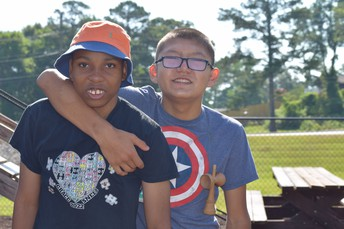 Some tips she provides in her training include:
Some tips she provides in her training include:
- Going for a tour to calm any anxiety or nervousness;
- Learn what level of inclusion is offered by the camp or program (inclusive, peer buddy, adaptive, etc.);
- Learn about expectations like what to bring, what the schedule is going to be like, etc., and
- Enjoy the journey!
For individuals who hit hurdles during the experience, she suggests that campers talk to counselors or directors outside of the activity or program to ensure their needs are being met.
Chimberoff also suggests the campers think about what kind of experience they want to have at camp.
When it comes to the kind of camps that a parent and child might be considering, "Campers should be asking themselves if they want to spend a week outside, be in the heat or whatever elements that camp takes place in," said Chimberoff, reflecting on her outdoors camp. "Are these the activities you are interested in or are they focusing on your interests?"
At Camp All For One, Chimberoff also uses certain moments to teach recognition and advocacy.
During a moment where a camper may not be able to regulate or express their emotions clearly, "it becomes a teaching moment where I can teach the other campers how to identify someone in distress and how they can advocate for their friends when they can’t advocate for themselves," she adds.
Camps should commit to diversity, equity and inclusion
ACA has made a commitment to diversity, inclusion, and equity (DEI) as part of its mission. According to the ACA website, advancing DEI at camp is a growth strategy on two fronts. First, it is a viable business strategy to ensure the economic sustainability and growth of individual business models. Second, it is a strategy for providing the critical educational and developmental growth children require to reach their greatest potential.
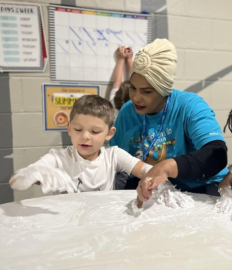 Furthermore, focusing on DEI will ensure that camps meet the changing needs of families while also being an essential tool in addressing historical inequities. While every camp cannot strive to serve every child, they will significantly benefit from prioritizing and advancing DEI in their programs.
Furthermore, focusing on DEI will ensure that camps meet the changing needs of families while also being an essential tool in addressing historical inequities. While every camp cannot strive to serve every child, they will significantly benefit from prioritizing and advancing DEI in their programs.
"We are really focused on empowering camps to create quality experiences for all people," said Rosenberg about ACA and its members. "We are really helping create a world of belonging and growth for folks. And today this work is so much more important. The visibility of the work is really important as kids prepare to learn in school [and] young adults prepare [to work]."
Working at the Hands, Hoof, and Heart camps is the first step for individuals with and without disabilities into careers in education and agriculture. "We have been the first for so many to step into the workforce," said Chimberoff. One of the camp counselors, who has a disability, is volunteering with Camp All For One because he is interested in a career in education.
Also, there have been several camp volunteers who have gone into special education careers because of this experience.
Rosenberg reflected on the work of ACA and said, "Camps provide kids with powerful lessons around community and character building and skill development and how to live healthily."
To help search for camps that meet your child’s wants and needs, the ACA has a find-a-camp tool on its website. FOCUS also has a collective list of camps in Georgia that includes inclusive camps and camps focused on serving only campers with disabilities.
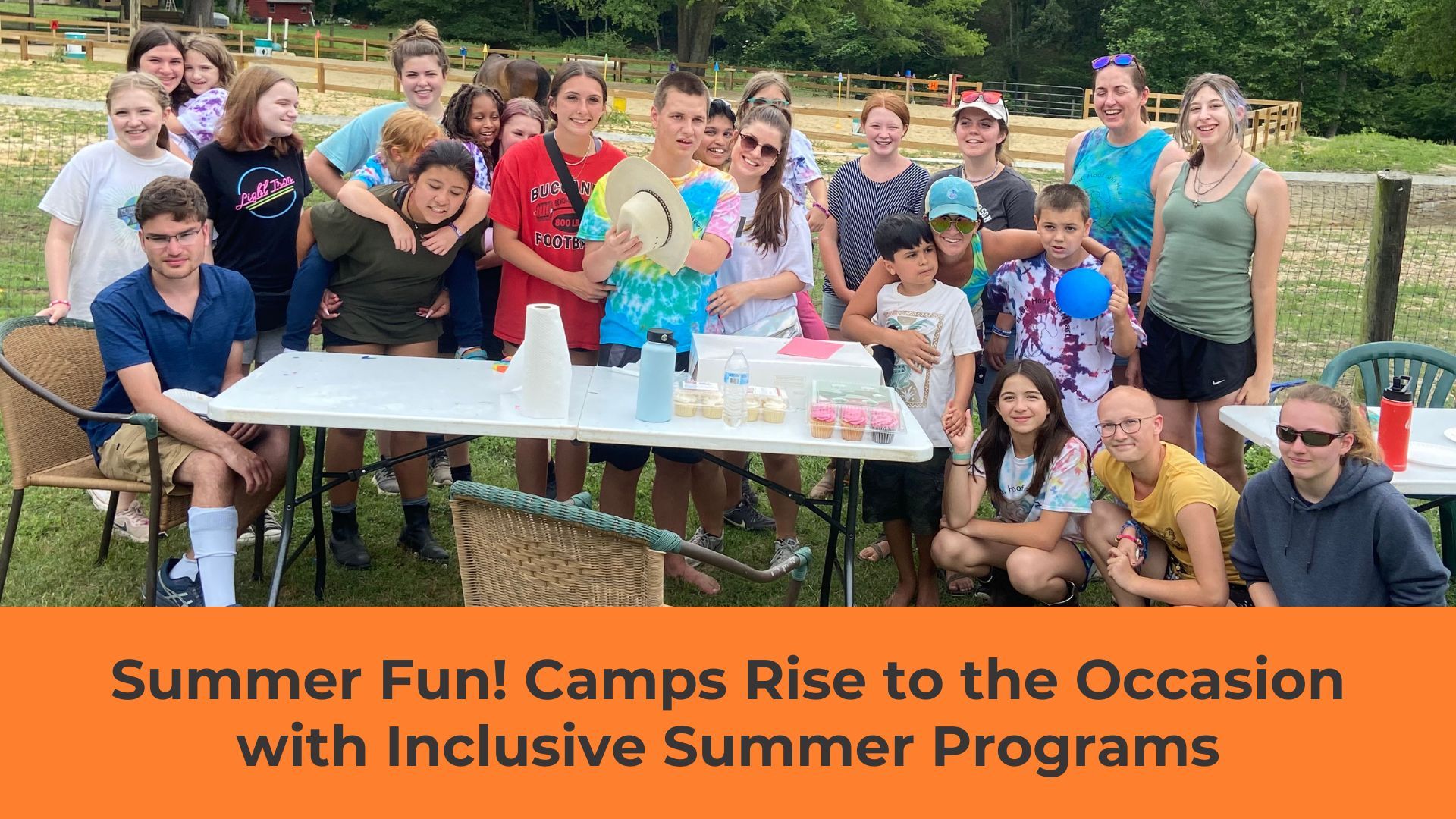
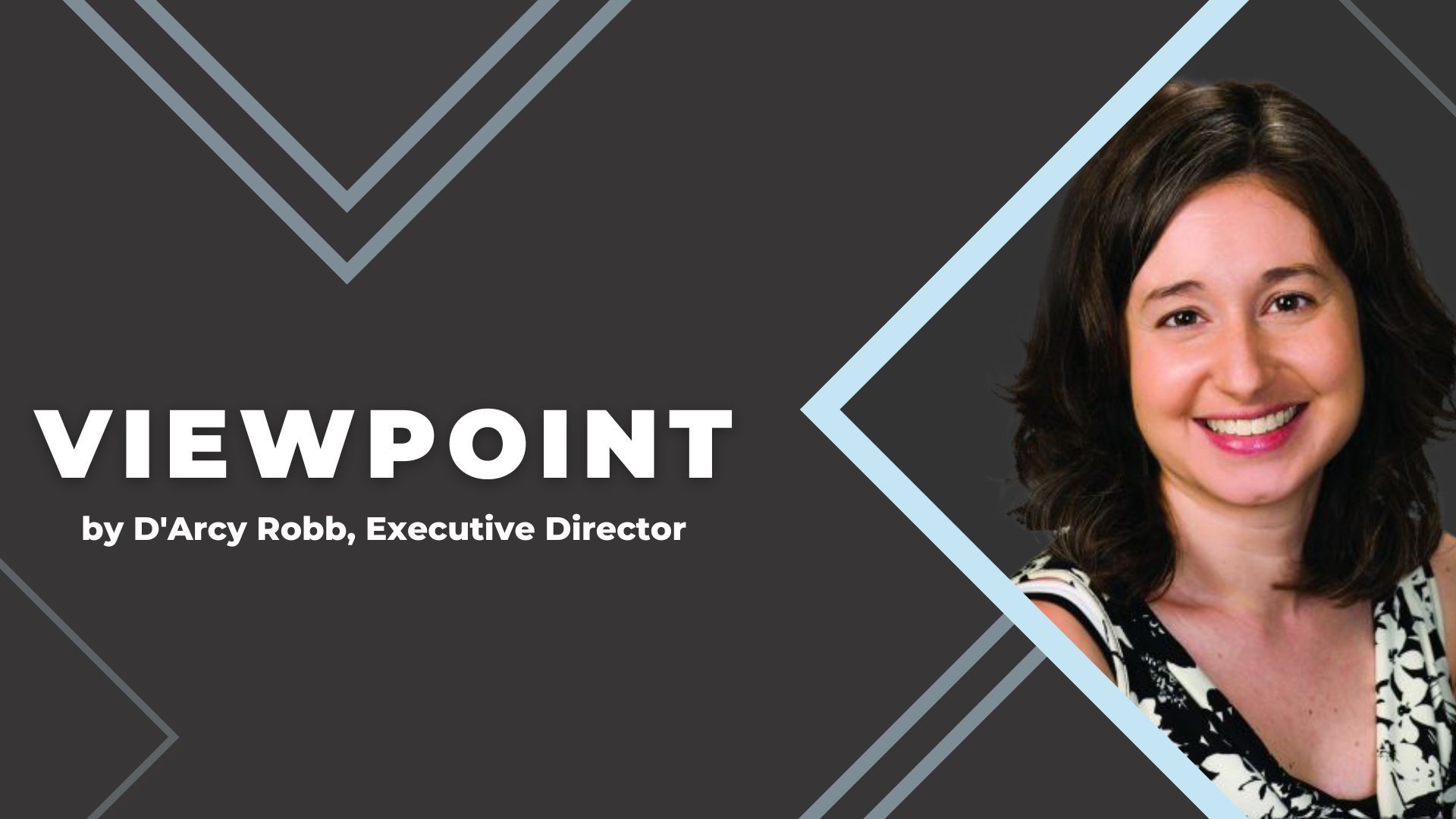

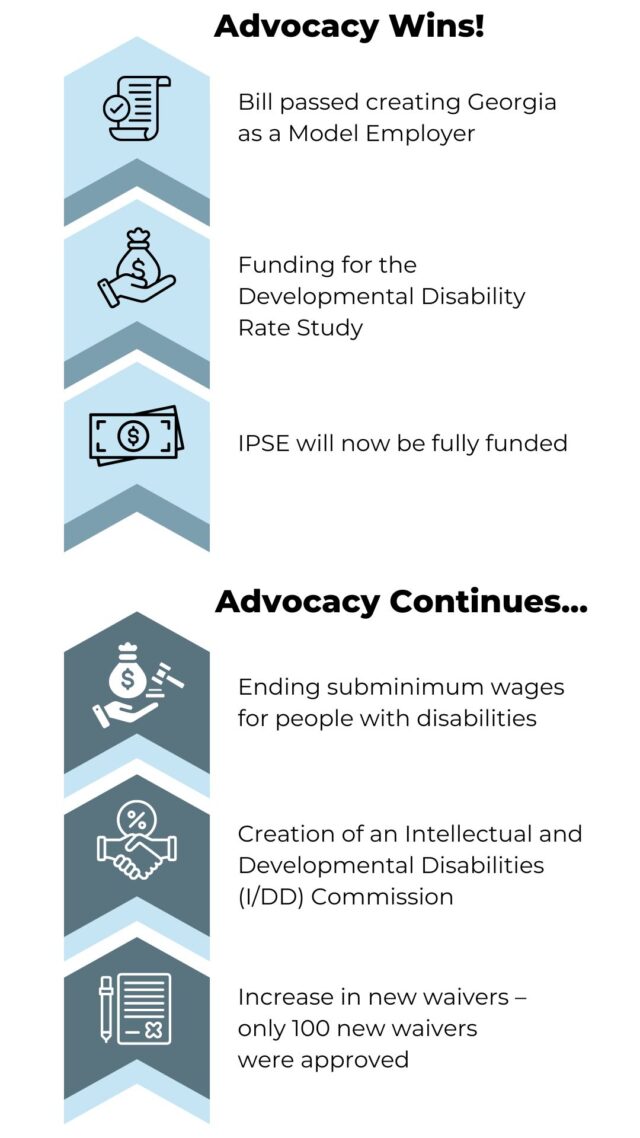 Infographic of Advocacy Results
Infographic of Advocacy Results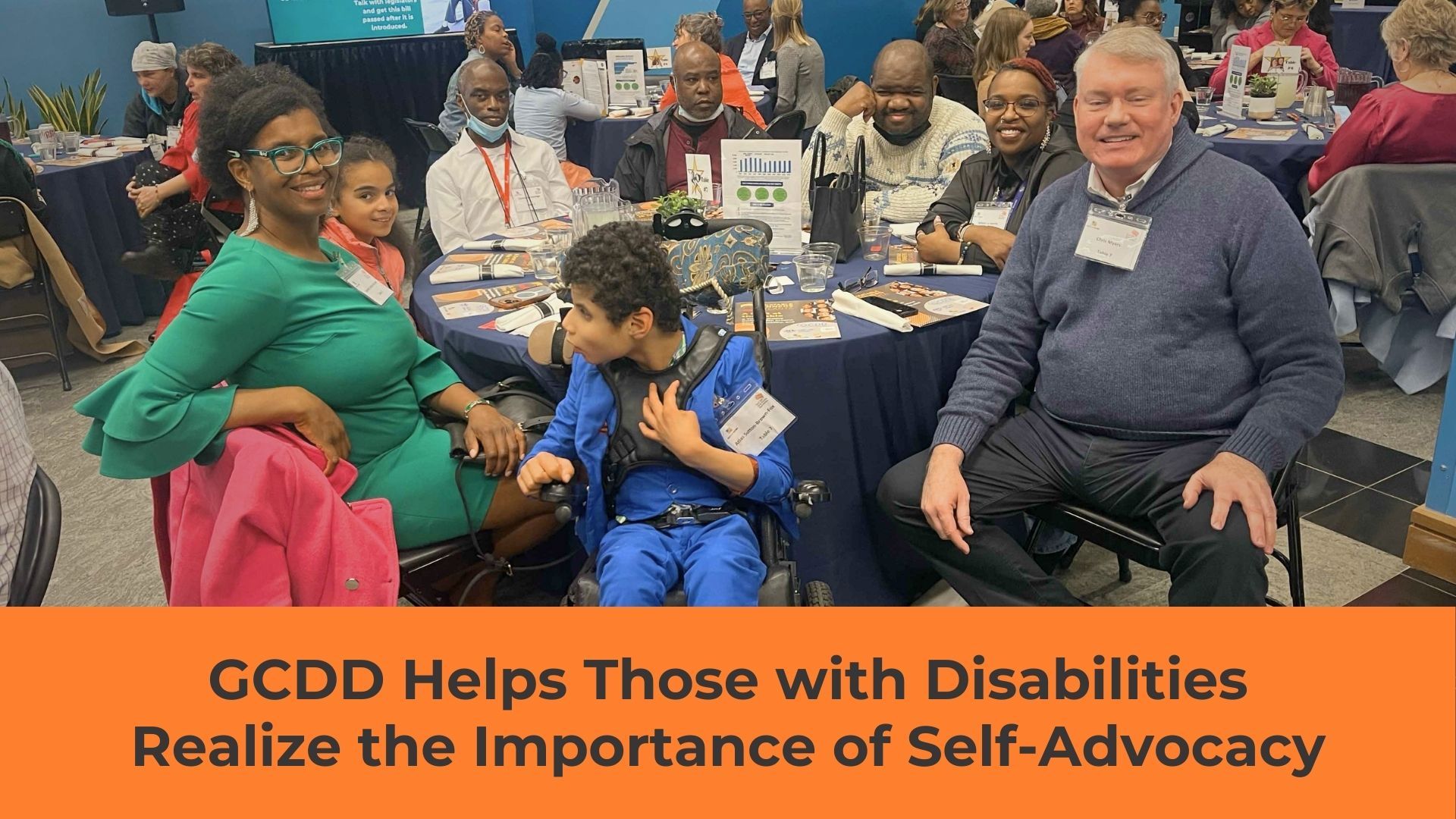
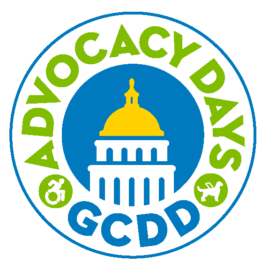 The State of Georgia kicked off its legislative session in January, and the Georgia Council on Developmental Disabilities (GCDD) was front and center to advocate for the disability community across the state. During the session, GCDD hosted its annual
The State of Georgia kicked off its legislative session in January, and the Georgia Council on Developmental Disabilities (GCDD) was front and center to advocate for the disability community across the state. During the session, GCDD hosted its annual 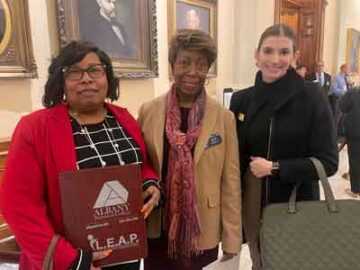 From left to right: Regina Watts, Director of Albany Tech’s IPSE Program (LEAP), Sen. Freddie Powell Sims (D-District 12), Starr Bruner, GCDD
From left to right: Regina Watts, Director of Albany Tech’s IPSE Program (LEAP), Sen. Freddie Powell Sims (D-District 12), Starr Bruner, GCDD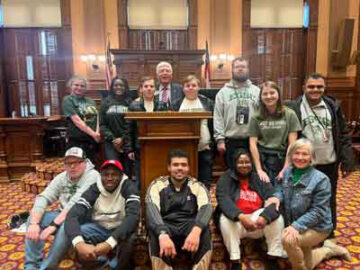 Theresa Davis and East Georgia State College IPSE students with Rep. Larry J. “Butch” Parrish (R-District 158)
Theresa Davis and East Georgia State College IPSE students with Rep. Larry J. “Butch” Parrish (R-District 158)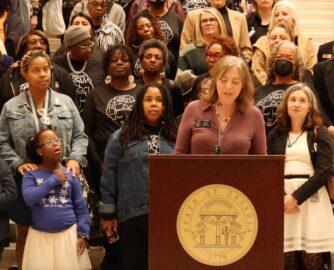 Sen. Sally Harrell (D-District 6) “It’s been 25 years since the Supreme Court’s Olmstead decision, which said that people with disabilities have a right to state-funded services to live and thrive in their communities rather than being forced to live in institutions,” Rep. Sally Harrell (D – District 6) said at a press conference during Advocacy Days at the Capitol. “And it’s been nearly 16 years since our state entered into a settlement agreement with the Department of Justice and committed to giving Georgians with intellectual and developmental disabilities the support they need to live in their own homes and lead productive lives.”
Sen. Sally Harrell (D-District 6) “It’s been 25 years since the Supreme Court’s Olmstead decision, which said that people with disabilities have a right to state-funded services to live and thrive in their communities rather than being forced to live in institutions,” Rep. Sally Harrell (D – District 6) said at a press conference during Advocacy Days at the Capitol. “And it’s been nearly 16 years since our state entered into a settlement agreement with the Department of Justice and committed to giving Georgians with intellectual and developmental disabilities the support they need to live in their own homes and lead productive lives.”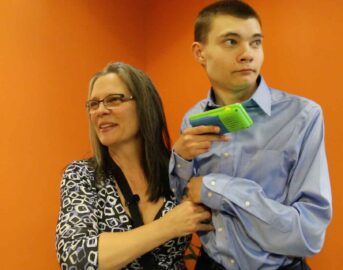 Priscilla Hackstadt and her son Christopher Priscilla Hackstadt came to the Capitol to advocate for her son Christopher, who is non-verbal. He’s 18 and has a rare genetic condition called Phelan-McDermid Syndrome, which means he doesn’t develop like other kids. Right now he’s in a transition program in Gwinnett County. When he turns 22, he will age out of the school system.
Priscilla Hackstadt and her son Christopher Priscilla Hackstadt came to the Capitol to advocate for her son Christopher, who is non-verbal. He’s 18 and has a rare genetic condition called Phelan-McDermid Syndrome, which means he doesn’t develop like other kids. Right now he’s in a transition program in Gwinnett County. When he turns 22, he will age out of the school system.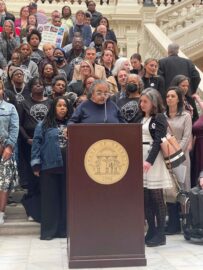 Dorothy HarrisDorothy Harris of Fitzgerald, GA is a self-advocate with United for Change, a grassroots network of self-advocates across the state. She’s been active in self-advocacy for more than 20 years.
Dorothy HarrisDorothy Harris of Fitzgerald, GA is a self-advocate with United for Change, a grassroots network of self-advocates across the state. She’s been active in self-advocacy for more than 20 years. 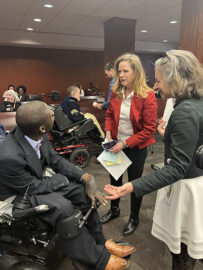 Stacy Ramirez, GAPSE Public Policy Liaison Stacy Ramirez’s 29-year-old son has autism and she has a 2-year-old great niece with Down syndrome. Speaking as public policy liaison for the Georgia chapter of the
Stacy Ramirez, GAPSE Public Policy Liaison Stacy Ramirez’s 29-year-old son has autism and she has a 2-year-old great niece with Down syndrome. Speaking as public policy liaison for the Georgia chapter of the 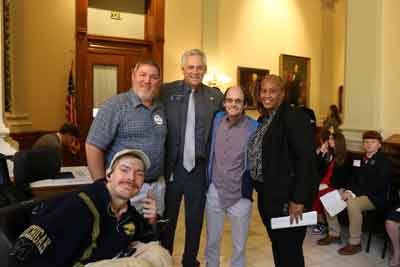 “When I first started with Diversified, I was a job coach in supported employment and it was tough working. I actually helped meet the cleaning crew and it was tough doing that work because I could see the talents, the gifts. I could see the hunger in the individuals wanting more,” she said.
“When I first started with Diversified, I was a job coach in supported employment and it was tough working. I actually helped meet the cleaning crew and it was tough doing that work because I could see the talents, the gifts. I could see the hunger in the individuals wanting more,” she said. 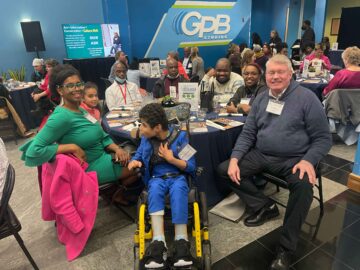 On February 6, 2024 at Georgia Public Broadcasting, GCDD hosted “A Seat at the Table: A Transformative Conversation Around Equity, Disability, and Support.” An additional virtual event was hosted on February 27th.
On February 6, 2024 at Georgia Public Broadcasting, GCDD hosted “A Seat at the Table: A Transformative Conversation Around Equity, Disability, and Support.” An additional virtual event was hosted on February 27th. 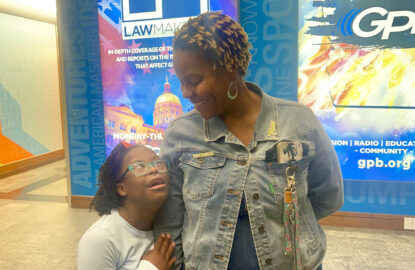 Sahliman and Sadiyah Abdullah Sahlimah Abdullah had been in inclusive settings in elementary school, but when she transitioned to middle school, her parents were told she didn’t belong in the same classes as the other students.
Sahliman and Sadiyah Abdullah Sahlimah Abdullah had been in inclusive settings in elementary school, but when she transitioned to middle school, her parents were told she didn’t belong in the same classes as the other students.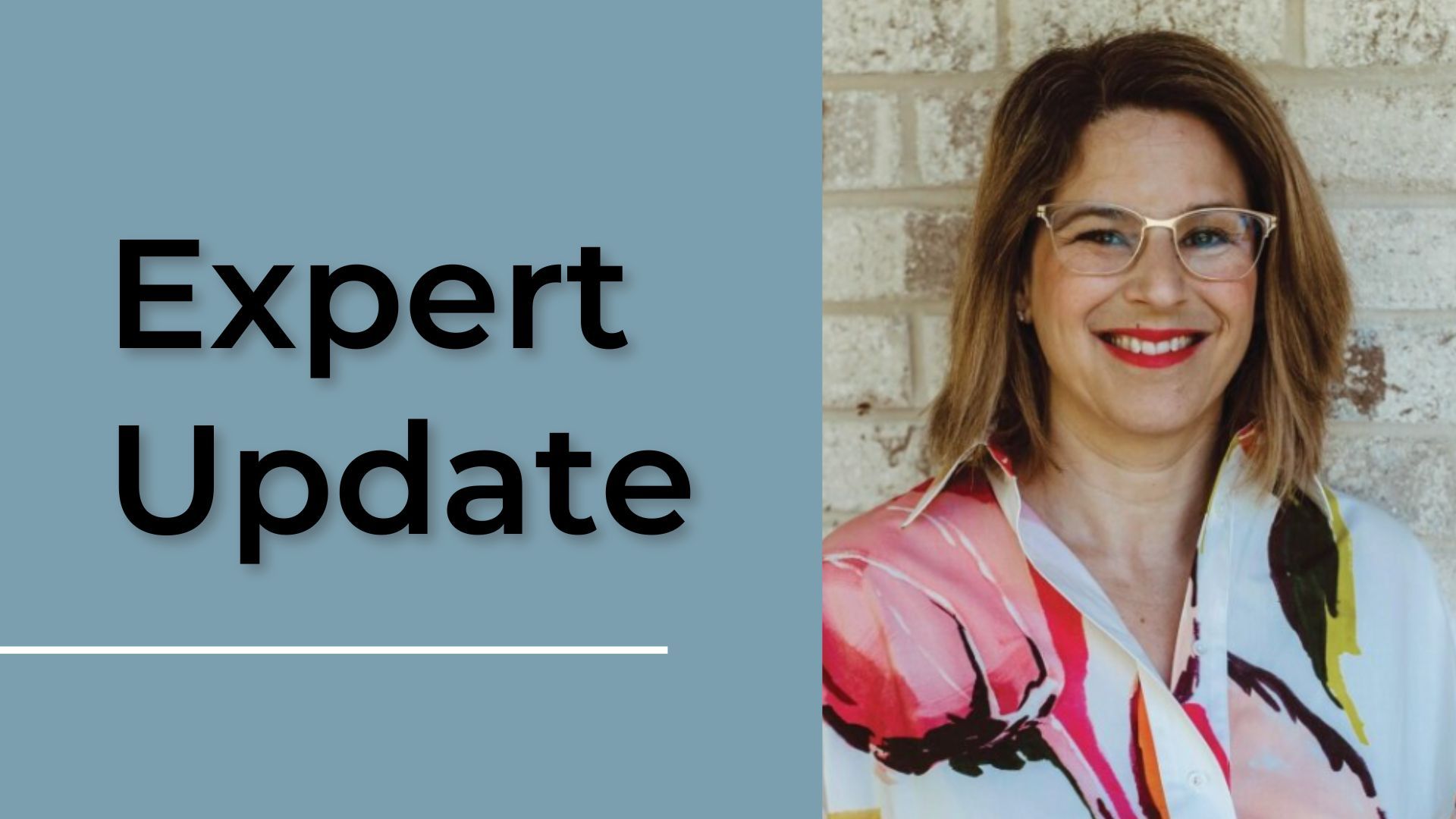
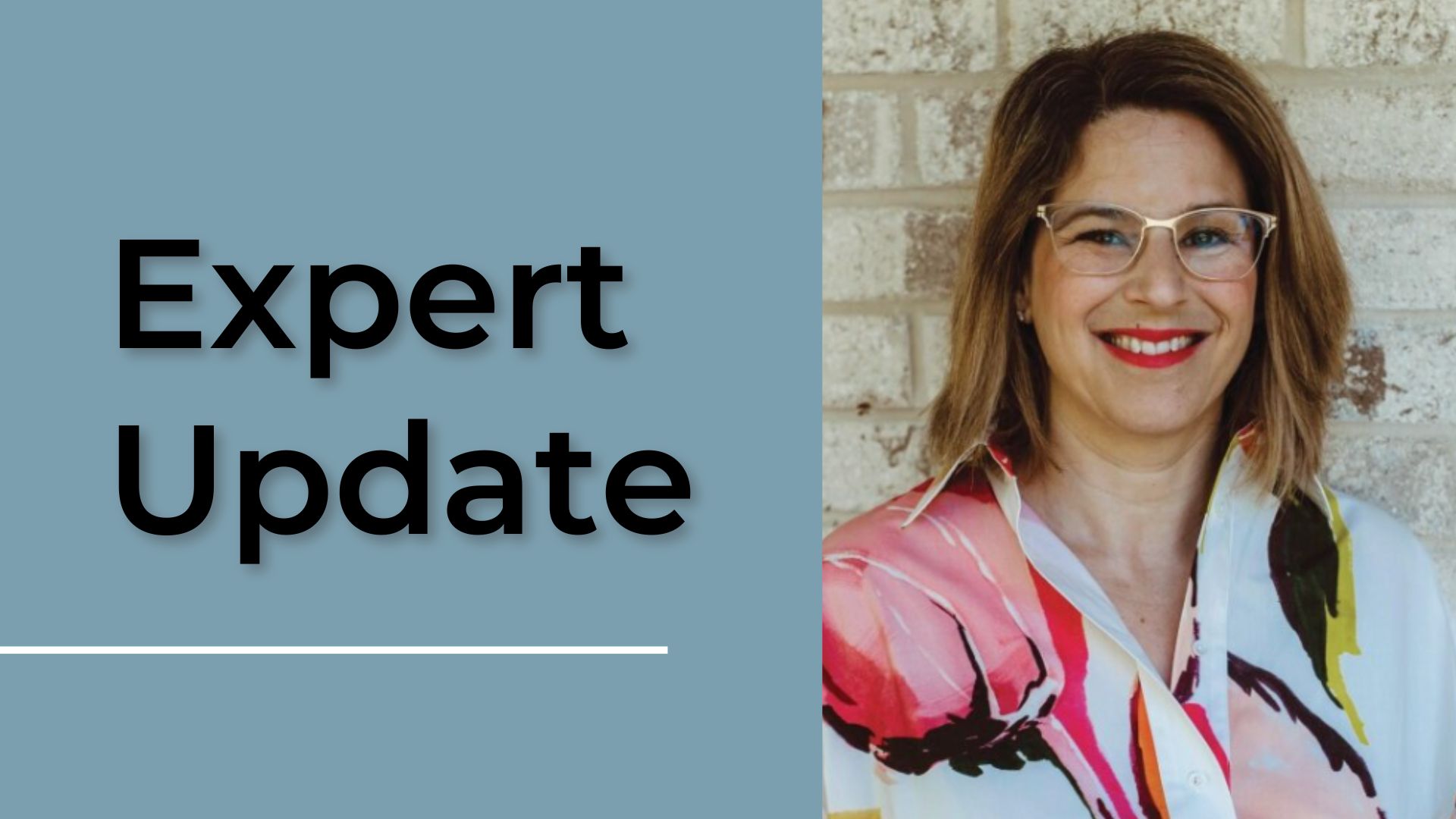 For children with disabilities, school can be a stressful and overwhelming time. The Georgia Council on Developmental Disabilities (GCDD) sat down with Leslie Lipson, an attorney and director of the
For children with disabilities, school can be a stressful and overwhelming time. The Georgia Council on Developmental Disabilities (GCDD) sat down with Leslie Lipson, an attorney and director of the 
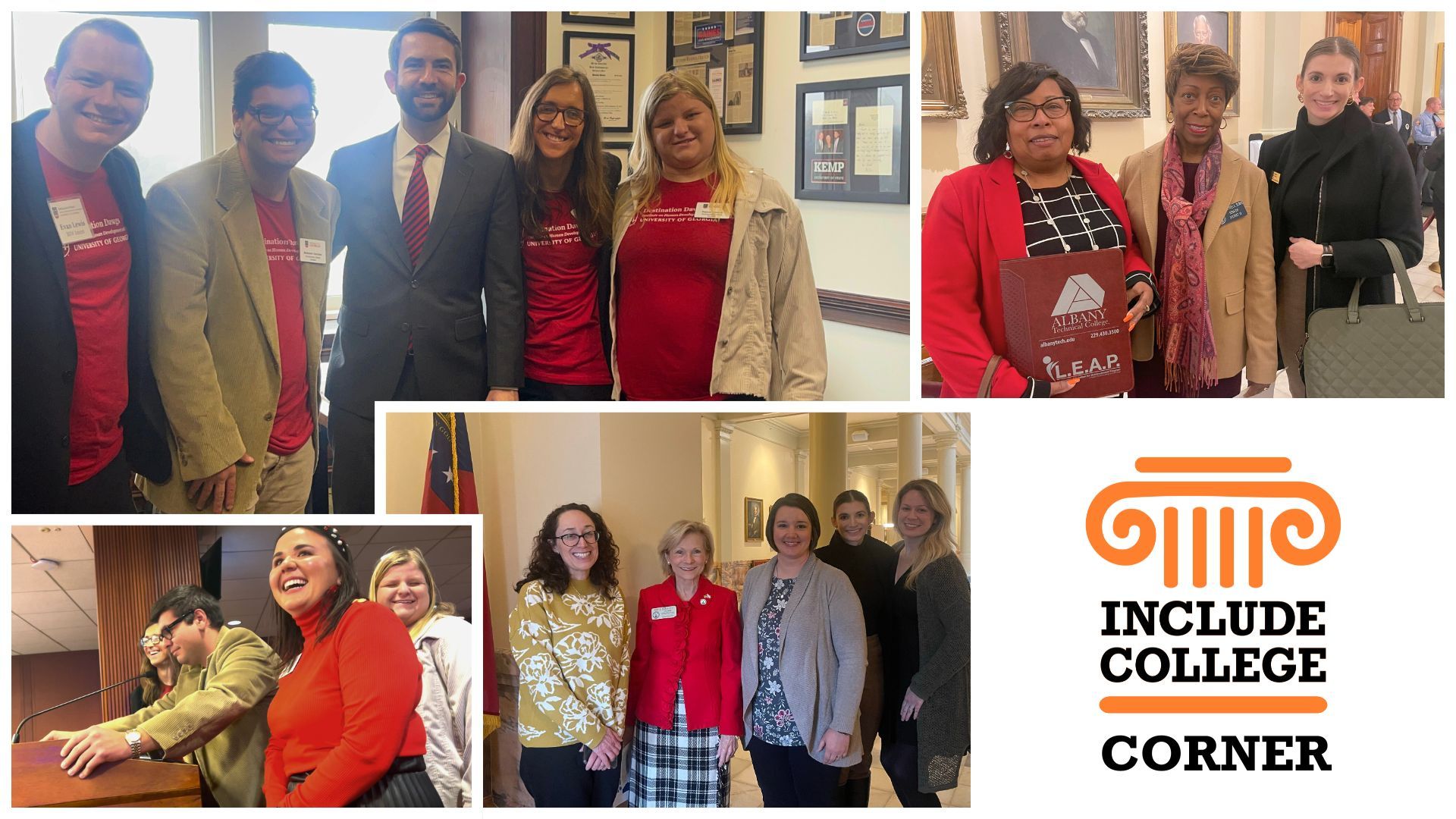
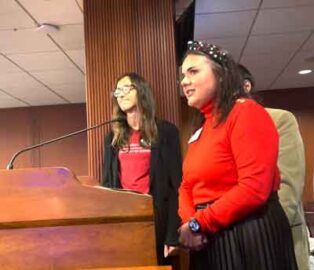
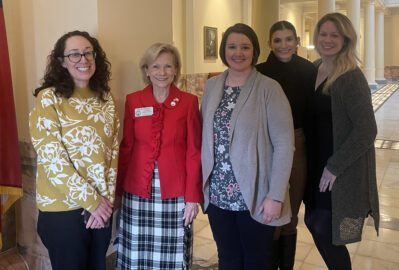

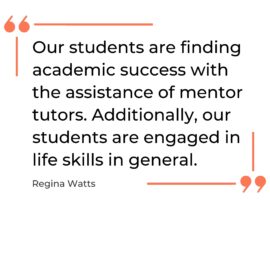
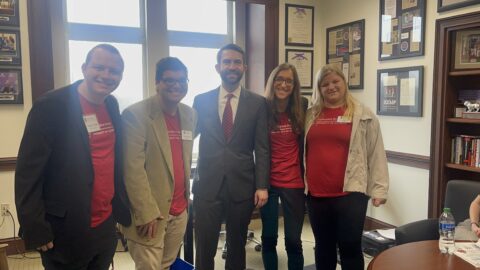

 The Georgia Council on Developmental Disabilities’ (GCDD) public policy team has made tireless efforts to foster new relationships and educate legislators on the need for policy change that promotes opportunities for Georgians with developmental disabilities (DD) to live, learn, work, play, and worship in their communities – and it’s showing results.
The Georgia Council on Developmental Disabilities’ (GCDD) public policy team has made tireless efforts to foster new relationships and educate legislators on the need for policy change that promotes opportunities for Georgians with developmental disabilities (DD) to live, learn, work, play, and worship in their communities – and it’s showing results.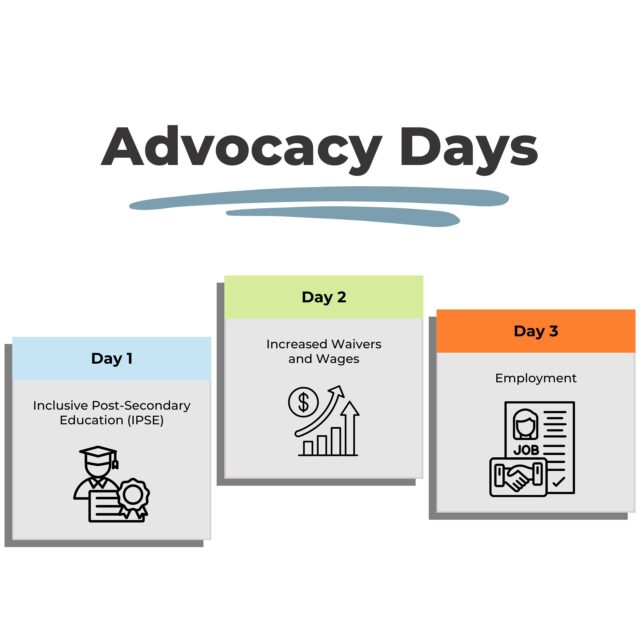
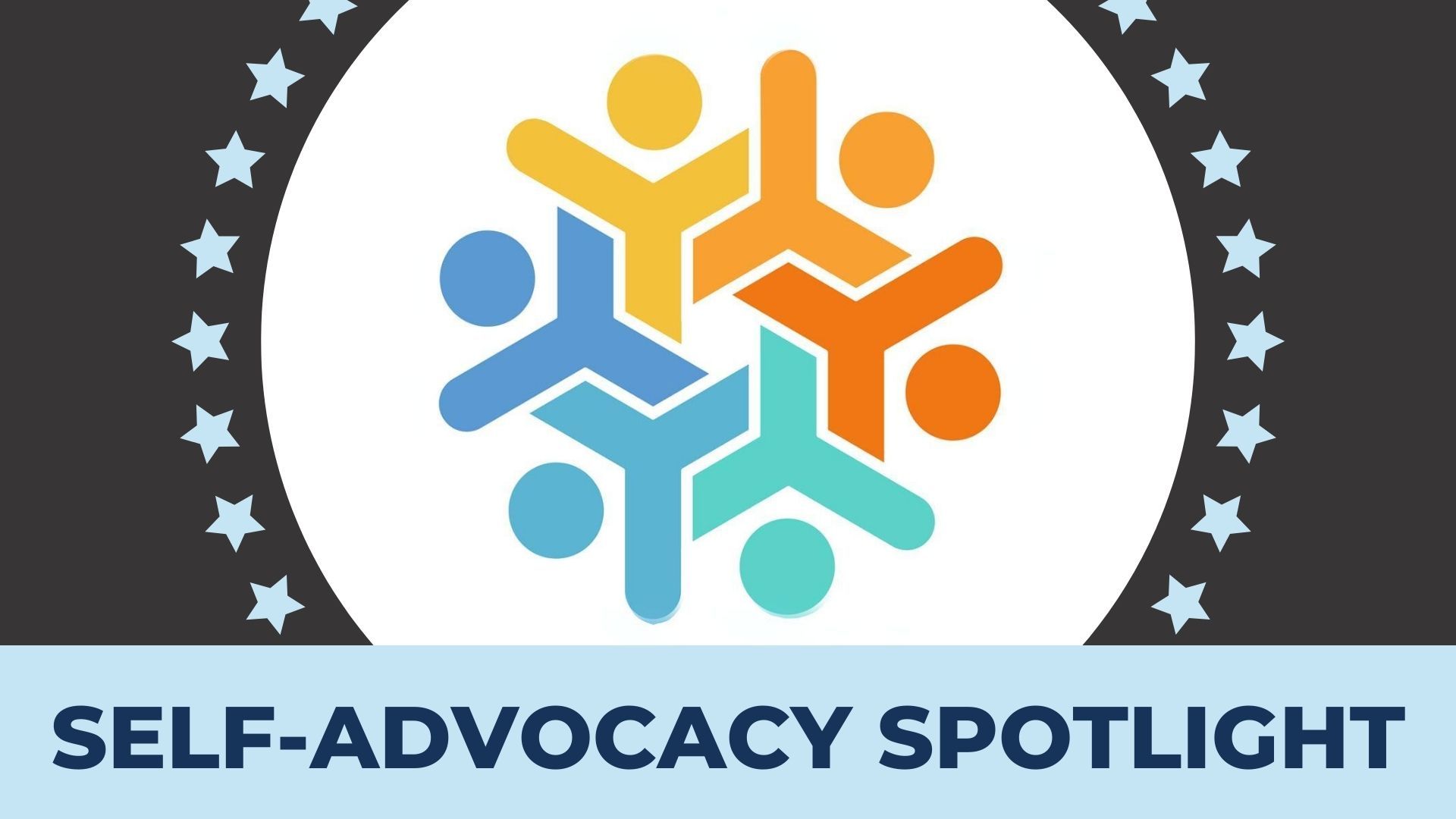
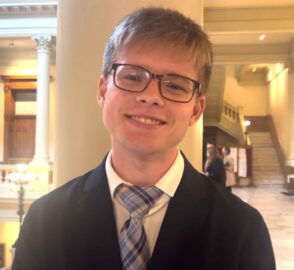

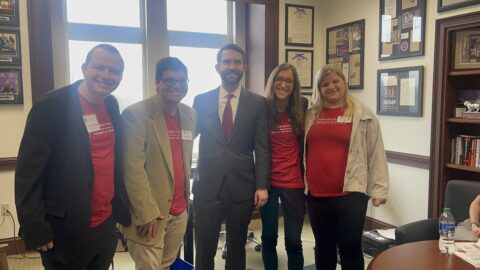
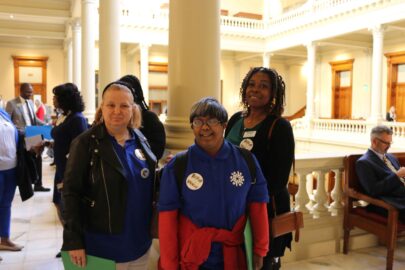 “I want to talk to my lawmakers about the DSP shortages and waivers. It is important because right now there are [DSP shortages] and there is less pay for them. It is really hard with their lives, and they can’t do everything,” said Isaac, who is from Macon.
“I want to talk to my lawmakers about the DSP shortages and waivers. It is important because right now there are [DSP shortages] and there is less pay for them. It is really hard with their lives, and they can’t do everything,” said Isaac, who is from Macon.